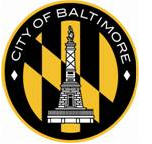Mayor, Police Commissioner, Announce Transition to New Crime Reporting System
Wednesday Mar 16th, 2022

FOR IMMEDIATE RELEASE
BPD Transitioning to the National Incident-Based Reporting System
BALTIMORE, MD. (Wednesday, March 16, 2022) — Today, Mayor Brandon M. Scott and Baltimore Police Commissioner Michael S. Harrison announced a change in the way the Baltimore Police Department (BPD) collects and reports crime data.
BPD will be transitioning to the National Incident-Based Reporting System (NIBRS). The FBI has mandated that all law enforcement agencies across the country move to NIBRS.
This new reporting system provides greater specificity in reporting offenses, allows for the collection of more detailed crime-related information, helps give context to specific crime issues and affords greater analytic flexibility of the crime-data collected.
“In line with the Evaluation and Accountability Pillar within our Comprehensive Violence Prevention Plan, this is an essential component to moving our crime prevention strategies forward into the 21st century and improving the way we use and track data,” said Mayor Brandon M. Scott. “When we look at specific instances of crime, we need to see the full picture so that we can effectively guide our crime prevention, deployment, and apprehension measures.”
For decades, the national standard for crime reporting and data collection was through the Uniform Crime Reporting (UCR) Program’s Summary Reporting System (SRS). In 2021, the UCR Program phased out SRS and transitioned to NIBRS-only data collection.
SRS collected data under a hierarchy rule that reported only the most serious offense in an incident. However, according to data, 10.6% of crimes committed include additional offenses.
With NIBRS, there is no hierarchy rule. This allows for multiple offenses to be documented per incident. The NIBRS system also expands the classification of offenses beyond what was available under SRS. For example, under SRS there are only 8 “Part 1” offenses, while there are 52 “Group A” offenses under NIBRS. (“Group A” under NIBRS is comparable to “Part 1” under SRS.)
Increased specificity in reporting helps the Baltimore Police Department:
- Quickly see the bigger picture in an incident
- Identify patterns in crimes in a timely manner
- Fight crime more effectively
Why is this important?
- Reported crime numbers will seem higher than they were in the past for certain offense categories.
- This does not mean that crime has increased; it just means the way crimes are reported has changed.
“NIBRS will benefit the Baltimore Police Department, city partners and residents by increasing the quantity, quality and timeliness of crime data,” said Commissioner Michael Harrison. “NIBRS will help give our department better context to specific crime issues and affords greater analytic flexibility of the crime data collected to ultimately reduce crime more effectively.”
In 2021, BPD launched Axon Records -- its new Records Management System – allowing the Department to become a NIBRS-reporting agency.
For more information on Baltimore Police Department’s transition to NIBRS, visit baltimorepolice.org/nibrs.